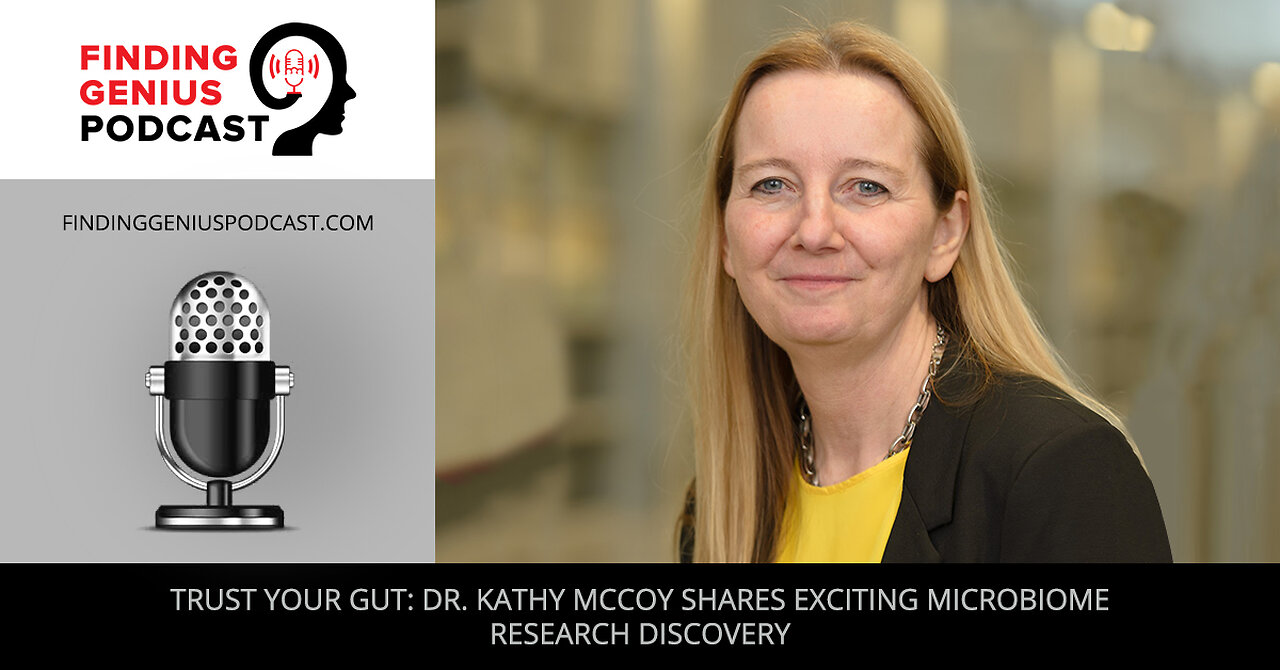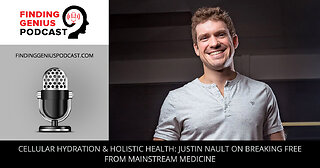Premium Only Content

Trust Your Gut: Dr. Kathy McCoy Shares Exciting Microbiome Research Discovery
Tiny microbes make a huge difference in our health. These internal ecological systems utilize communication or signaling to maintain this health, effecting immune system function. This podcast shares an important discovery in this communication that influences receptivity to cancer treatment. Listen and learn.
1) How scientists knew the human microbiome influences cancer immunotherapy, but couldn't identify a key player in this mucosal immunology impact factor,
2) What study Dr. McCoy put into play to identify this player in the immune system of the human body, and
3) What steps they might now be able to take to harness the power of the microbiome and translate it to therapies.
Dr. Kathy McCoy is a professor in the Department of Physiology and Pharmacology at the University of Calgary and the director of the International Microbiome Centre. Her research is focused on interactions between the microbiome and immune system and she shares an exciting just-published study that presents a key finding in cancer treatment. Specifically, her research asked how gut microbes play a rule in influencing or regulating the efficacy of immune checkpoint blockade therapy or cancer immunotherapy. She says that scientists have known for a few years that our microbiome is associated with immunotherapy success or lack thereof, but needed more information to make a difference in treatment.
Here's the big idea behind her findings: while researchers have known there's a microbial immune conversation, they now know that it's a three-way conversation rather than a two-way conversation. In addition to the microbes and immune system players, metabolites sent out by microbes have a say; furthermore, this conversation gets enhanced by cancer immunotherapy. More specifically, they found that one of these metabolites, inosine, binds to a receptor present on T-cells and causes a signal transduction cascade that makes that T-cell turn on an anti-tumor response—it makes the cytokines necessary to attack cancer cells. If a patient doesn't have this metabolite, the immunotherapy may not work as well. The hope is researchers can figure out how to encourage this metabolite in patients. Listen in for more details about this study and about its life-changing implications.
For more, see her lab website: https://www.kathymccoylab.ca/.
Episode also available on Apple Podcast: http://apple.co/30PvU9C
-
 29:53
29:53
FGP
3 days ago💧 Cellular Hydration & Holistic Health With Justin Nault 🌿✨
281 -
 DVR
DVR
Slightly Offensive
1 hour agoIs the US Headed for MORE WAR Under TRUMP? | Guest: Scott Horton
1.52K -
 58:29
58:29
The StoneZONE with Roger Stone
1 hour agoRoger Stone Hails Confirmation of Kash Patel, Trashes Schiff for Attacks On Patel | The StoneZONE
1.79K -
 LIVE
LIVE
Precision Rifle Network
1 day agoS4E5 Guns & Grub - The Best Rifle Under $2000
40 watching -
 1:02:54
1:02:54
Glenn Greenwald
23 hours agoSouth Korean Economist Ha-Joon Chang on the Economic World Order, Trump's Tariffs, China & More | SYSTEM UPDATE #410
29.3K23 -
 1:02:27
1:02:27
Donald Trump Jr.
6 hours agoBye Mitch, plus Kash confirmed, Interview with AJ Rice | Triggered Ep.218
81.8K57 -
 LIVE
LIVE
The Amber May Show
8 hours agoWomen Of Rumble 02-20-25
292 watching -
 41:18
41:18
Kimberly Guilfoyle
6 hours agoToday, We Kash in on Equal Justice, Live with Ryan Walters & Daniel Turner | Ep.198
66.2K20 -
 1:36:50
1:36:50
Redacted News
5 hours agoThe TRUTH in Ukraine has been EXPOSED by Trump and they are melting down | Redacted w Clayton Morris
104K174 -
 2:05:35
2:05:35
The White House
7 hours agoPresident Trump Hosts a Reception Honoring Black History Month
64.7K43